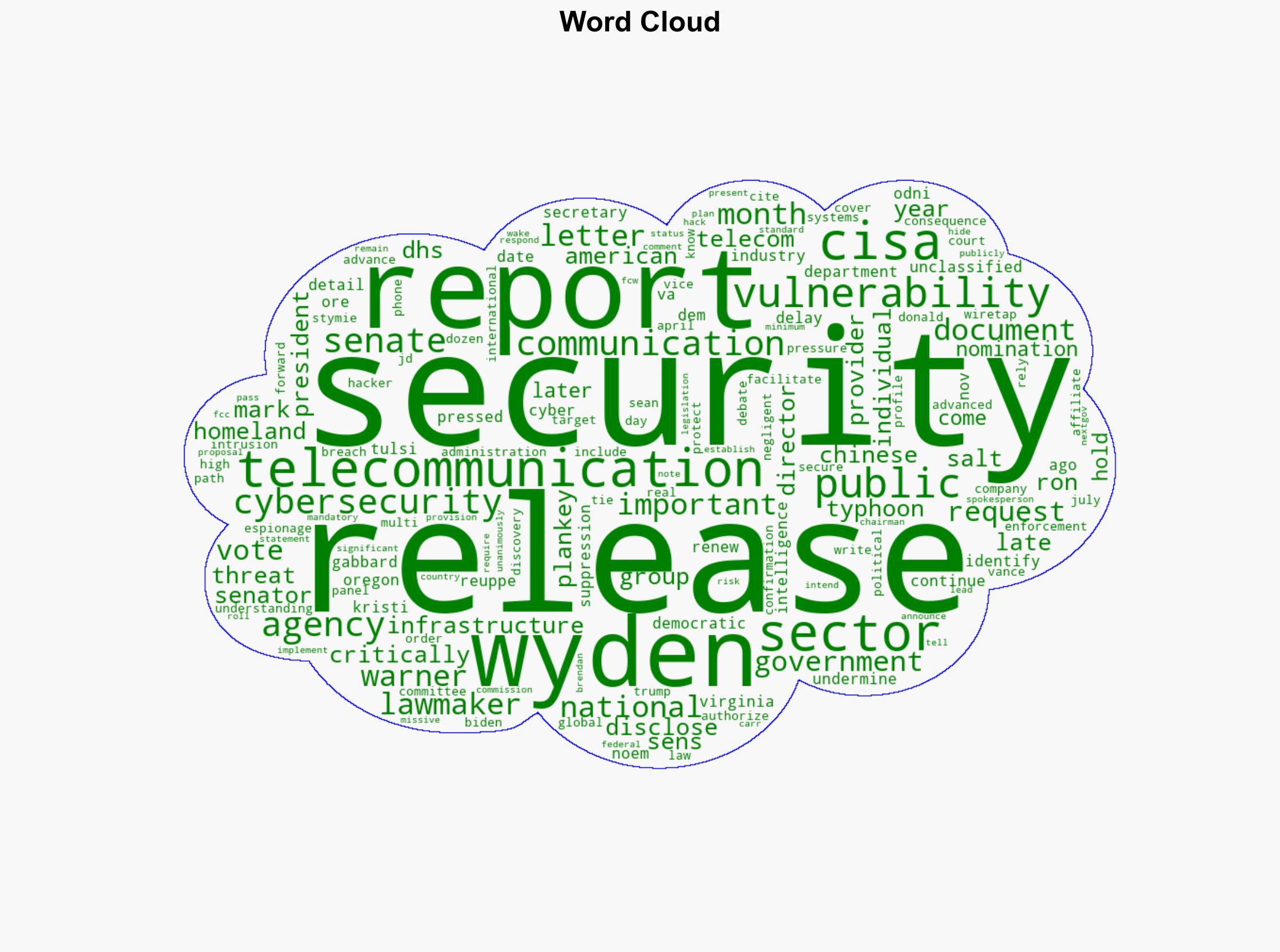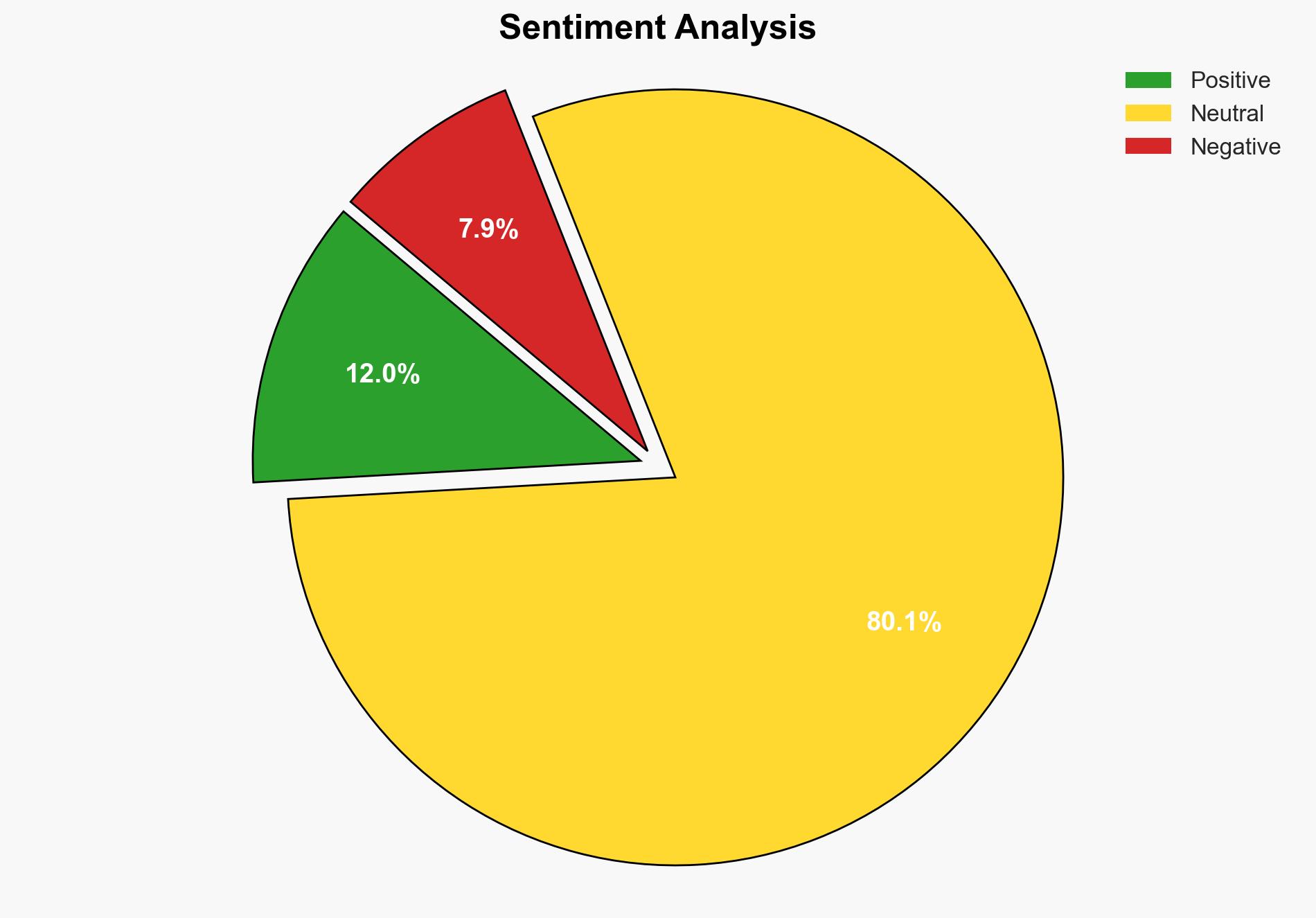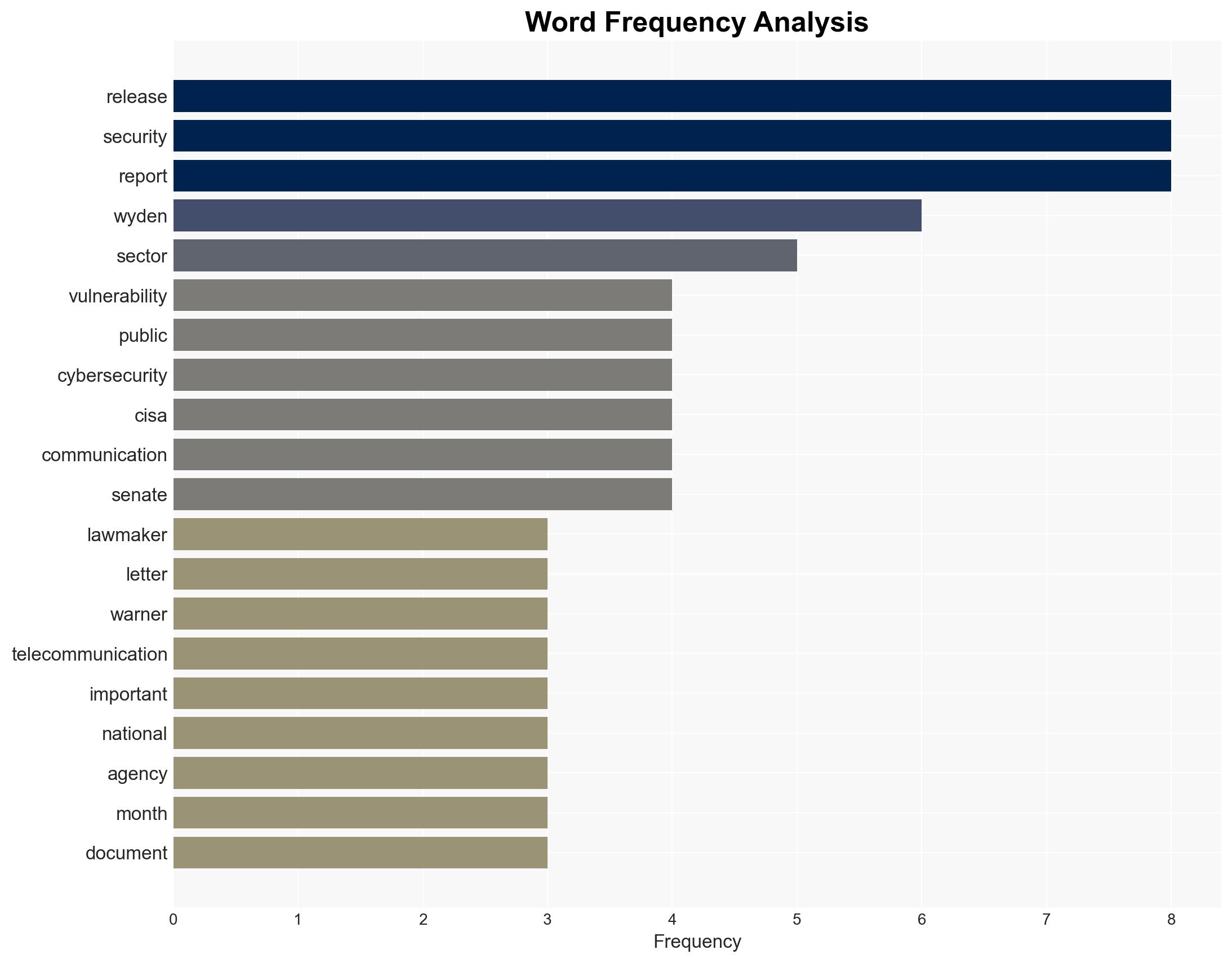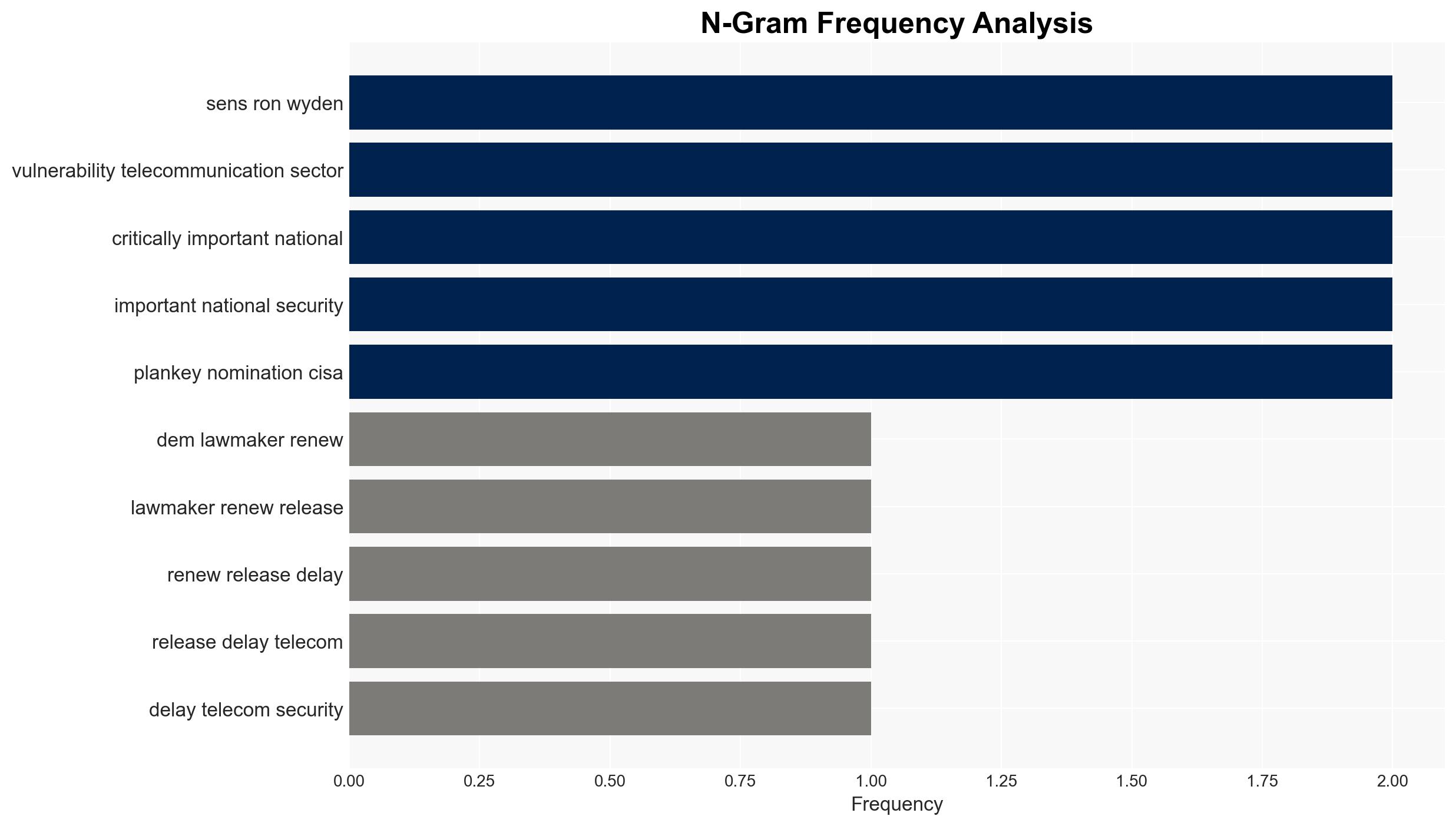Dem lawmakers renew calls for release of delayed telecom security report – Nextgov
Published on: 2025-11-14
AI-powered OSINT brief from verified open sources. Automated NLP signal extraction with human verification. See our Methodology and Why WorldWideWatchers.
Intelligence Report: Dem lawmakers renew calls for release of delayed telecom security report – Nextgov
1. BLUF (Bottom Line Up Front)
There is a moderate confidence level that the delay in releasing the telecom security report is due to bureaucratic inertia and potential political considerations rather than a strategic decision to withhold critical information. It is recommended that the intelligence community expedite the release of the report to enhance public understanding and foster informed debate on telecommunications security vulnerabilities.
2. Competing Hypotheses
Hypothesis 1: The delay in releasing the telecom security report is primarily due to bureaucratic inefficiencies and inter-agency coordination challenges. This hypothesis is supported by the typical slow pace of government processes and the complexity of coordinating between multiple agencies such as DHS, ODNI, and CISA.
Hypothesis 2: The delay is a deliberate decision influenced by political considerations, possibly to avoid public scrutiny or backlash regarding the vulnerabilities identified in the telecommunications sector. This hypothesis considers the potential embarrassment or diplomatic tensions that could arise from publicizing the extent of foreign espionage activities.
Hypothesis 1 is more likely given the historical precedent of bureaucratic delays in government report releases. However, the presence of political figures pressing for the report’s release suggests that political considerations cannot be entirely ruled out.
3. Key Assumptions and Red Flags
Assumptions: It is assumed that the report contains significant cybersecurity vulnerabilities that are critical to national security. It is also assumed that the agencies involved are acting in good faith to protect national interests.
Red Flags: The involvement of high-profile political figures such as Senators Ron Wyden and Mark Warner suggests potential political motivations. The lack of response from CISA on the report’s status raises questions about transparency and accountability.
4. Implications and Strategic Risks
The continued suppression of the report could undermine public trust in government transparency and hinder efforts to address cybersecurity vulnerabilities in the telecommunications sector. This could lead to increased risk of cyber espionage and attacks, potentially compromising sensitive communications and critical infrastructure.
Escalation scenarios include heightened tensions with foreign governments implicated in espionage activities and potential retaliatory cyber operations. Economically, the telecommunications sector could face increased regulatory scrutiny and financial penalties if vulnerabilities are not addressed.
5. Recommendations and Outlook
- Expedite the release of the telecom security report to promote transparency and informed public debate.
- Enhance inter-agency coordination to streamline the release process and avoid future delays.
- Implement mandatory minimum cybersecurity standards for the telecommunications sector to mitigate identified vulnerabilities.
- Best-case scenario: The report is released, leading to improved cybersecurity measures and enhanced public trust.
- Worst-case scenario: Continued delay results in a significant cyber attack exploiting the identified vulnerabilities.
- Most-likely scenario: The report is eventually released with some redactions, leading to incremental improvements in cybersecurity practices.
6. Key Individuals and Entities
Ron Wyden, Mark Warner, Kristi Noem, Tulsi Gabbard, JD Vance, Sean Plankey, Brendan Carr
7. Thematic Tags
National Security Threats
Structured Analytic Techniques Applied
- Cognitive Bias Stress Test: Expose and correct potential biases in assessments through red-teaming and structured challenge.
- Bayesian Scenario Modeling: Use probabilistic forecasting for conflict trajectories or escalation likelihood.
- Network Influence Mapping: Map relationships between state and non-state actors for impact estimation.
Explore more:
National Security Threats Briefs ·
Daily Summary ·
Methodology





